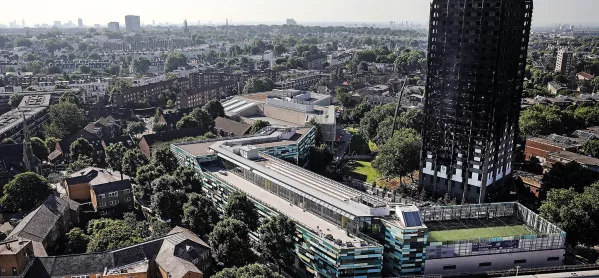- Home
- ‘Our college needs to work for the whole community’
‘Our college needs to work for the whole community’

The recent history of Kensington and Chelsea College (KCC), where I took over as chair of governors in May, is not pretty. Student numbers have plummeted by nearly 50 per cent since 2012-13. We have had four principals in the past year and three consecutive “requires improvement” grades from Ofsted.
Add to these issues the controversial sale of the college’s North Kensington building to the Royal Borough of Kensington and Chelsea last year, and the community and staff have been left feeling suspicious and anxious about the future.
My first priorities were to work with the team to stabilise the college, focus on the improvement interventions that were already in progress, and revitalise recruitment for the September intake. With deteriorating financial health and following the area review process, the urgent selection of a merger partner was already under way.
Bitterness and anger
However, until I fronted a community meeting in late June, I had no idea of the bitterness and anger felt by the community about the sale of the college’s Wornington Road site to the local authority. The sale anticipated KCC moving out of the site by 2018 or 2019, the demolition of the building and its redevelopment for affordable and other housing, and a new but smaller site for the college.
This area of North Kensington is home to a vibrant and diverse community. As well as the eclectic mix of talent, ethnicity, age groups and interests, there is a well-documented gulf between the affluent, housed in some of London’s most expensive real-estate, and those on lower incomes living in more affordable housing. These are the “anywheres” and the “somewheres”, as memorably coined in David Goodhart’s book, The Road to Somewhere. He distinguishes between affluent liberals, living and working in a global context, and those for whom community, place, family and roots go to the heart of who they are and how they live their lives.
The Save Wornington College Group is a proud group of “somewheres” for whom the rich tapestry of North Kensington is determinedly home, not merely where they live. These passionate people care deeply about their community, their buildings, and their futures. They have been dismayed at the redevelopment of much of this area to make way for anonymous new flats that few of them could or would want to afford.
It is against this backdrop, and amplified by the terrible Grenfell Tower fire, that they are protesting so vehemently against the redevelopment of the Wornington Road site.
We held another community meeting last month to discuss the future of the Wornington Road campus. In a packed local primary school hall, I and other college representatives listened to the palpable anger and distrust expressed by people for whom the further destruction of their “somewhere” - Wornington Road - was a step too far.
Since the summer, I have worked with colleagues in the college and the council to ensure that the original redevelopment plans are put on hold while the wider context of the future of the college, and the community’s requests, are considered. The option of staying in the present building is back on the table for discussion with the council.
Community commitment
A more difficult concern, loudly voiced at our meeting, was about the college’s merger with Ealing, Hammersmith and West London College (EHWLC). Here my responsibilities are first and foremost to the college, its students and our funders. Merging colleges to form more efficient entities that can better serve students and employers is a national policy and, of course, our reach goes beyond the local community.
I cannot, in all conscience, sanction the continuation of a business model that is no longer viable. The college is too small to sustain the quality and quantity of provision that is needed. With costs spread over a larger group, vital resources can be released to deliver skills, education and training to the community, which rightly sets so much store by it.
Working with EHWLC, we now need to show our community, our staff and our students just how much more the college can do as part of a larger group. It is perhaps too much to ask for their trust in this process, but I will be personally accountable and determined that Kensington and Chelsea College will go on to serve generations of our community in the future as it has done in the past.
Mary Curnock Cook is chair of governors at Kensington and Chelsea College, and former chief executive of Ucas. She tweets @MaryCurnockCook
Keep reading for just £1 per month
You've reached your limit of free articles this month. Subscribe for £1 per month for three months and get:
- Unlimited access to all Tes magazine content
- Exclusive subscriber-only stories
- Award-winning email newsletters


